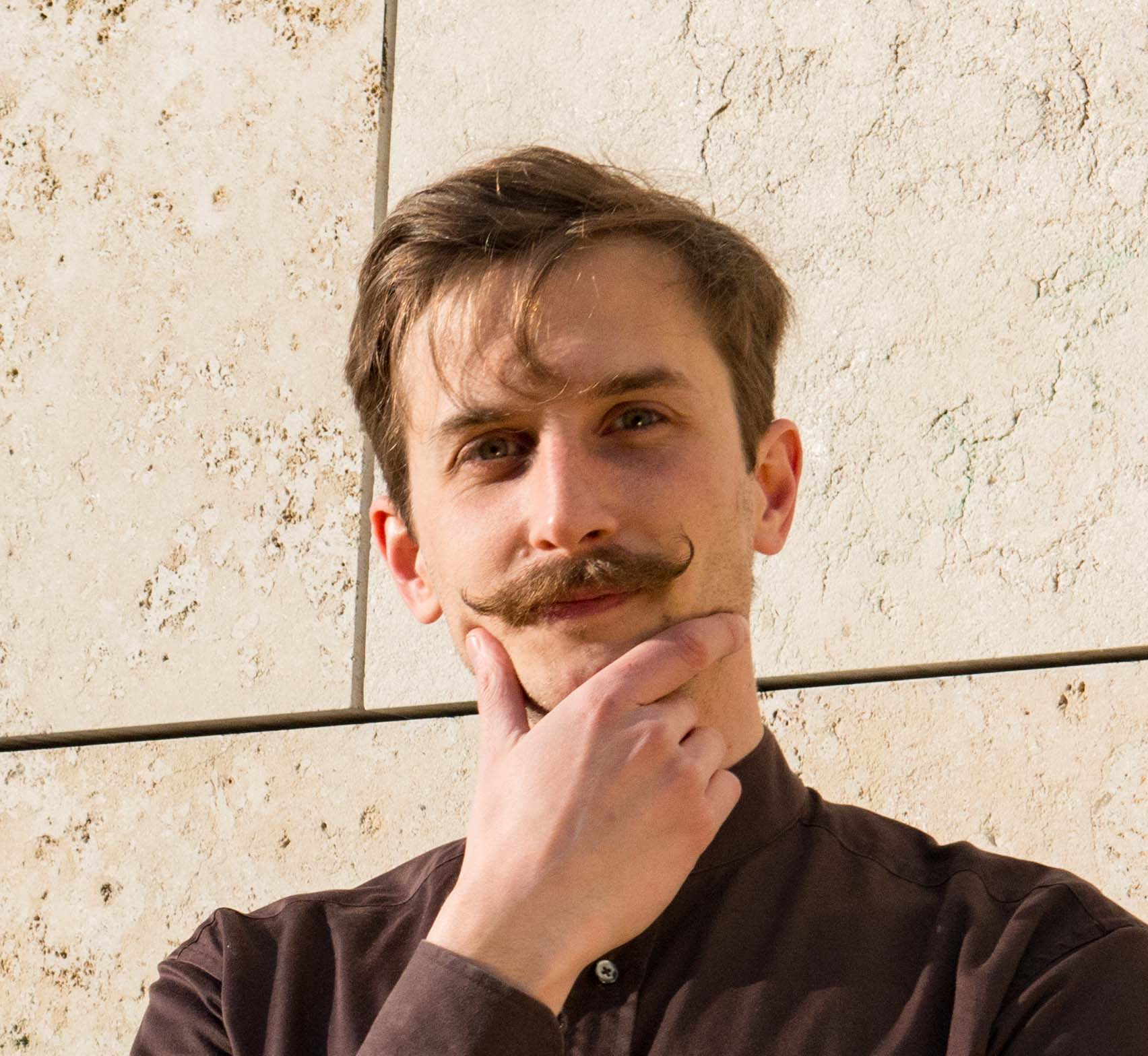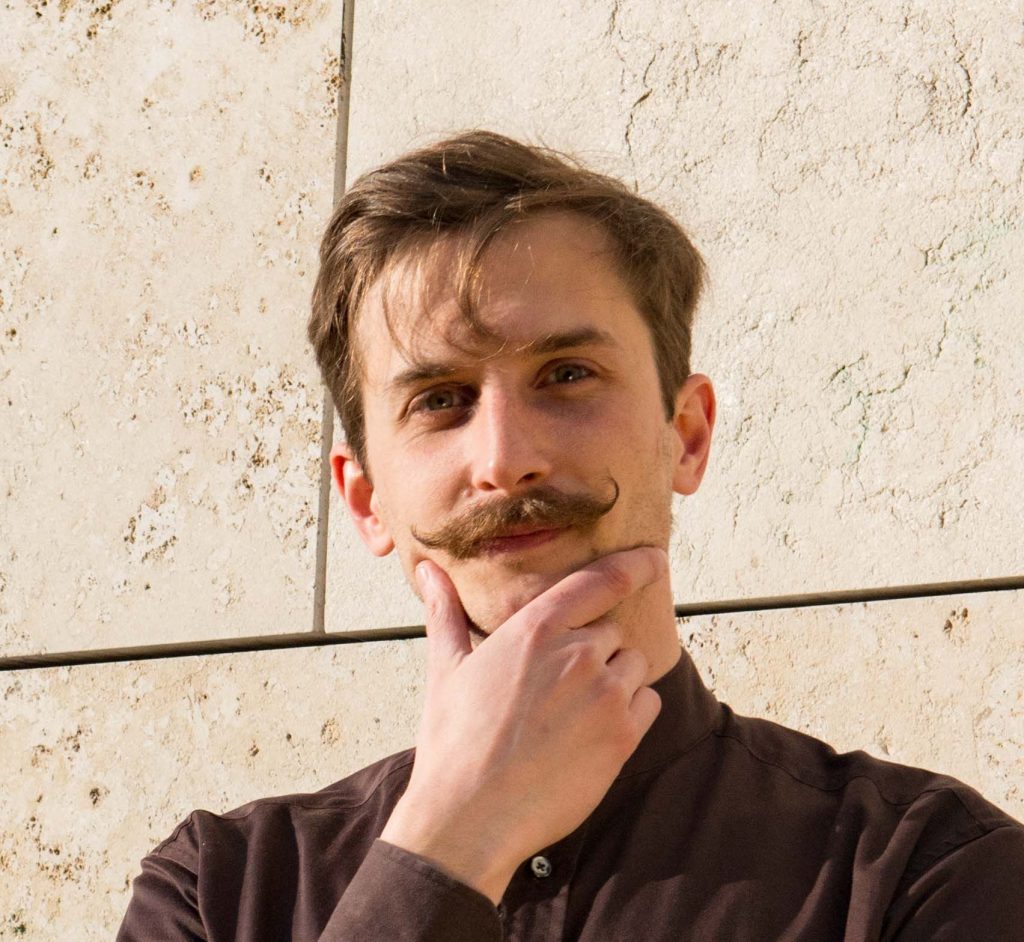Michael has worked with social entrepreneurship for over a decade – first as a founder, later as a supporter for social entrepreneurs. He is the manager of the Social Impact Lab Frankfurt and co-founder and manager of scientific cooperations for the Social Entrepreneurship Network Germany. Michael’s passion lies within building pragmatic ecosystems that solve society’s most relevant challenges. He absolutely loves chocolate.
Michael pops up on my LinkedIn with the most insightful updates on events, opportunities, news and resources from and for social entrepreneurs. I joke that he is my weekly digest of what is happening in Germany’s social enterprise sector and it’s not far-fetched.
Michael manages social impact lab Frankfurt and heads up scientific cooperations at Social Entrepreneurship Network Germany (SEND). “I help people build organizations but I don’t think in organizations. I think it lies in the nature of being an ecosystem builder – working on different projects with different partners toward a shared mission of strengthening and moving the German social enterprise sector forward. That’s why I feel right at home at SEND; as a membership organization with over 400 members, we try to understand the interests of social entrepreneurs and engage different actors in society in advancing the field (politicians, companies, civil society groups, etc.).”
And Michael knows a thing or two about the needs and struggles of German social entrepreneurs. For the second year in a row, in February 2020 he published the German Social Entrepreneurship Monitor (in German only, sorry folks!), a study of the unique hurdles, aspirations and realities of purpose-driven founders across the country.
The 2nd wave of social entrepreneurship in Germany
“I feel like we are currently experiencing the second wave of the German social enterprise movement.” Michael explains. “The first wave was spearheaded by big players like Ashoka, KfW Foundation, SAP, BMW Foundation, social impact gGmbH – they proved that social entrepreneurship is valuable and can scale in this country. Thanks to the great strides of these early movers, we were able to create SEND which – to me – symbolizes the second wave of the social enterprise movement. In a way, we are standing on the shoulders of these giants as we are looking to the future of where social enterprise creates value in a welfare state like Germany.
Within a strong welfare state, it is harder for social entrepreneurial solutions to take foothold.
It doesn’t mean we don’t need them, it just means we are shifting the mindset away from welfare to more innovative, self-sustaining solutions that affect our society: quality education for everybody, sustainable consumerism and production, an ageing society, humane work and economic growth that benefits all. Even if we do well as a developed nation compared to emerging economies, we cannot ignore our impact as an ex- and importer of goods. If the charcoal for our summer barbecue (something Germans take very seriously) is imported from sub-Saharan Africa, we must ask ourselves what role we want to play as a global consumer and what ripple effects we are causing up- and downstream.”
Supporting the supporters and social procurement
“With the recent publication of the Social Entrepreneurship Monitor Germany, we had a lot of solid data as a basis for our recommendations to the German government. I’m excited to see that our government has picked up social enterprise as a topic. The role I see government play for the advancement of social enterprise if two-fold:
- Stronger support for backbone organizations that train and equip social entrepreneurs, primarily through financing for capacity building.
- Social procurement. We have plenty of social entrepreneurs who can provide products and services to the government, but the latter is currently lacking incentives to do so.
And then of course, I’m excited to see SEND grow and serve the needs of our members!”
I want to make sure that people like us, who understand there’s more than selfish greed, will win in the end.
An ecosystem to address societal challenges
“Why am I passionate about this work? The truth is, I couldn’t think of anything else. My mom tells the story of me at 5 years old: Apparently I was running around our apartment holding up a big sign with some illegible call to arms. I was marching for social justice – that’s all either of us remembers. And it just kept growing from there; I grappled with big questions as a ten-year old and never really stopped. I’m in the game of solving societal problems, and social entrepreneurship is one of the tools that allows us to do exactly that.
I’m in the game of solving societal problems.
I believe society is constructed in a dialogue, so we all have a part to play: we have to go out there and make it count. Some of the founders I work with at social impact lab Frankfurt leave their corporate careers after decades in search for meaning and purpose. Others are recent college graduates with lots of ideas and energy. They all are incredibly smart, courageous and humble.
But knowing what challenges lie ahead, we must remind ourselves that we can’t solve for any of the Sustainable Development Goals through one startup or a team of graduates alone. They need a year alone to understand themselves, their roles as entrepreneurs and how their solution could work. And that’s fine!”
It takes an ecosystem to address systemic challenges.
How can we as a community support you in your work?
“Let’s think in ecosystems together – instead of building another silo. What projects and events can we shape in collaboration that will make social entrepreneurs, and their work, more effective and society at large richer, more inclusive and ecologically sustainable?”

Michael Wunsch
Frankfurt, Germany
Organization builder. Monitor initiator and systems thinker. Social justice advocate and chocolate addict.
